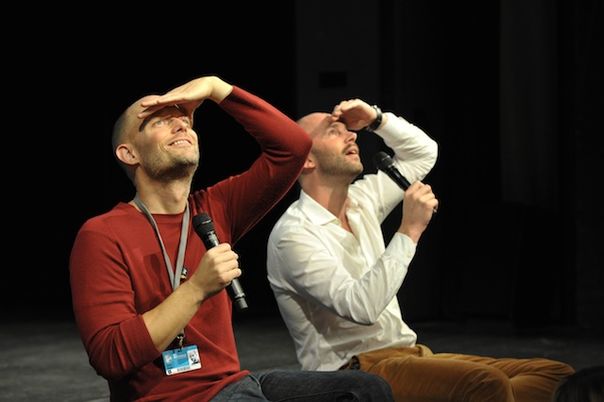Cinema of Thoughts and Feelings
Andrei Kartashov of the 2014 Talent Press reports from the Berlinale Talents Screening of Eskil Vogt's BLIND.

Eskil Vogt and Matthijs Wouter Knol
The Norwegian director/screenwriter Eskil Vogt who participated in Berlinale Talents in 2003, returns to the Berlinale this year with his directorial debut BLIND. Vogt first came to prominence as a screenwriter, having written two successful films for the director Joachim Trier (REPRISE, OSLO 31 AUGUST). For BLIND, which was awarded Best Screenplay at Sundance, the writing is essential: the narrative blends real experiences of the protagonist who’s lost her sight, and an imagined version of her life that she puts into writing.
The main challenge for Eskil Vogt was to visually transmit the experience of a blind person: “One option is showing black screen, and I do it at one point. But when you do that, you lose contact with the character. What is left is your reaction to the sounds, not the character’s reaction. I felt that the best point of departure for capturing the feel is to stay on the protagonist with close-ups. You hear the sounds without seeing what’s happening, but you see how she reacts. You’re as blind as her but you get access to her emotions.”
We don’t get to see many blind characters in cinema – given that this subject allows for the possibility to make some points about the nature of visuality, such reluctance to explore the topic is odd. “Most films about blindness are about a woman who’s lost her sight and who becomes stalked by a killer or something”, says Vogt. “Women are always victims in horror films because they are weaker, and a blind woman becomes an ultimate victim. I avoided that purposefully.”
For Vogt, blindness is a very cinematic subject. “I’m more drawn to cinema portraying people’s thoughts and feelings rather than documentation of what’s happening in front of a camera”, he says. “I’ve always felt that when we speak of cinema as a realistic medium, it’s true in many ways, but we forget that we experience life in one continuous take. Editing is the essence of cinema, and you don’t have it in life, but you have it in your dreams, in your thoughts, your imagination.”

